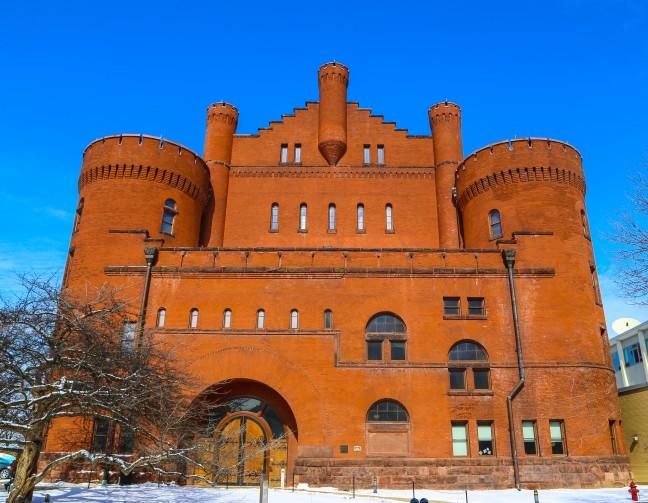During this November’s Native American Heritage Month, Indigenous student organization Wunk Sheek is partnering with various campus groups to organize a series of events honoring Indigenous culture and current Indigenous challenges, according to UW’s Native November webpage. Due to the pandemic, all events will be taking place virtually and in accordance with Dane County and CDC guidelines, the webpage stated.
Calls for a day honoring Native Americans can be traced as far back as 1915, but it took until 1990 for such recognition at the federal level, according to the Library of Congress. That year, then-President George Bush approved the designation of November as Native American Heritage Month and similar proclamations taking place every year since 1994.
UW Assistant Professor of American Indian Studies Kasey Keeler, who teaches Introduction to American Indian Studies, said that in the United States, many people are unfamiliar with Native American history and contemporary issues, largely as a result of lack of exposure to such topics from kindergarten through high school.
Even when governments legislate the teaching of Native American history and culture into state curriculums, as is the case in Wisconsin, there remains insufficient funding to ensure that teachers receive proper training to teach in those areas, Keeler said.
LINK. Madison calls for removal of Chamberlin Rock over racist nickname
Though Wisconsin’s Act 31 sets up specific educational standards regarding Native American content for students and teachers, a 2014 survey of teachers licensed after the law took effect brought to light various shortcomings. While the law requires incoming teachers to receive some college-level on Wisconsin’s American Indian tribes, the survey found that only 38 percent had done so. In addition, close to seven in 10 administrators said their schools lacked instructional materials on required Wisconsin American Indian subject matter.
“When students get to this intro class, they’re all just so surprised to know like, why didn’t I learn this? Why don’t more people know this? Why aren’t these things we’re talking about?” Keelery said. “So that’s really exciting for me as a faculty member, to be able to give them that knowledge and to empower them.”
American Indian Studies as a field grew out of the activism that characterized the late 60s and 70s, Keeler said.
UW Madison’s own AIS program was established in 1972 and has offered a certificate since 1997. Course offerings include classes on the Ojibwe language and courses on American Indian women, literature, and ecology.
Keeler said students who have declared an AIS certificate often did so after taking the introductory course she teaches. The enrollment cap on the course is increasing to 225 students next semester, up from 200 this semester and 150 in last year.
“Students take that class, and then it offers exposure to the field so that they can take additional classes in the future,” Keeler said. “It offers a nice grounding of exposure, and then it’s a way for us to reach out to new students on campus, particularly freshmen and transfer students, who may be interested in declaring an American Indian Studies certificate.”
Outside the classroom, several student and professional organizations offer students ways to engage with Native American culture and contemporary issues. In addition to Wunk Sheek, there is the Lambda Chapter of the historically Native American sorority Alpha Pi Omega.
For students interested in healthcare, the Native American Center for Health Professionals focuses on improving health and wellbeing of American Indian People by guiding and supporting Native students entering the healthcare fields.
The Center works with UW’s School of Medicine and Public Health to accomplish their five primary objectives, which include enhancing recruitment of Native students to UW health programs, improving student experiences for Native students, and growing Native health academic programs.
Healthcare disparities felt by Wisconsin Native American communities are still harsh reality
NACHP Director Danielle Yancey, who grew up on the Menominee reservation in northern Wisconsin, said the biggest component to the center’s work was combating the underrepresentation of Native Americans in health professions.
“People from our communities who are providing care in our communities are oftentimes, you well positioned to then address the health inequities that we know exist in our communities, and know how to do that in culturally informed ways,” Yancey said.
Given the importance of preparing non-native students who may be entering Native communities, the Center recently developed the Medical School’s first American Indian health course, a 10 week one credit health elective, to be offered for the first time in the Spring semester, Yancey said.
Currently over 50 students identify as Native at the graduate student level, across the medical school’s programs, a significant increase from when the Center was first founded, Yancey said.
UW partners receives grant to develop educational pathways for Native American students
To inspire prospective students, the Center has also published a video series of vignettes by current Native health professionals each sharing the story of what inspired them to go into healthcare.
“I know that something that is really important for students who have aspirations to go into this profession is seeing people from their community who have walked this path and having that kind of mentorship,” Yancey said.













